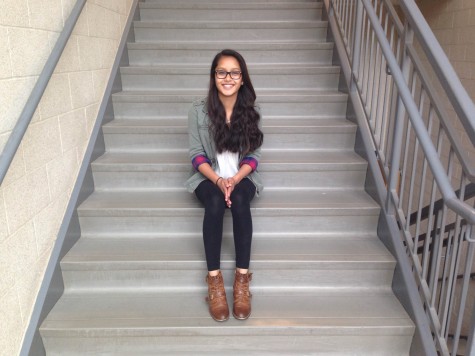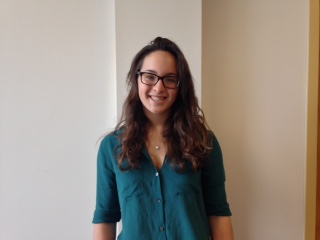District calendar proposals impact religious holidays
September 28, 2016
A series of proposed district calendars is being discussed by the Combined School Committee which could potentially eliminate days off on religious holidays and shorten February and April vacation in future school years in order to be more representative of all religions and increase in-session school days.
Superintendent Christine Johnson recommends proposals for district calendars that the Combined School Committee takes under consideration, ultimately deciding whether or not to implement them. The three calendars that are being reviewed and debated include the 2017-2018, 2018-2019, and 2019-2020 school years.
In Johnson’s first proposal, the 2017-2018 school year will have only one minor change.
“The first calendar will be ‘17-18. No changes. Status quo,” Johnson said. “It’s the historical calendar with a recommendation for a half-day on Good Friday.”
However, in the year of 2018-2019, Johnson’s proposal has more significant changes.
“So the second year, which would be ‘18-19, I’m recommending no religious holidays in the school calendar,” Johnson said. “We are in session on Good Friday, we are in session on Rosh Hashana, Yom Kippur.”
According to Johnson, removing religious holidays would allow the school district to properly recognize all religions and faiths.
“[Representing all religions] is a challenge and given the fact that we are a multicultural nation, which is outstanding, it is hard to capture all those celebrations in a school calendar,” Johnson said.
“As we become more diverse, in perhaps ways we weren’t before, there are new celebrations to recognize and it’s very difficult to be respectful of everyone because there are so many and so varied,” Johnson said.
Principal Tom Mead also recognizes Algonquin’s growing diversity.
“Our school, slowly but surely, is beginning to reflect more of the world out there in respect to heritage and ethnicities,” Mead said. “And that also has an impact on this whole issue in the sense that we don’t celebrate all of the world’s religions here, we celebrate some of them. There’s that to think about in the sense of acknowledgement, recognition, and appreciation for other people, their beliefs, their religions.”
In regard to absences during religious holidays, Mead acknowledges that some students and faculty will need to take the day off in order to recognize their faith.
“I think we’ll probably develop a protocol around [excused absences]. I don’t think it’ll be difficult,” Mead said. “The good news about it is in the end it’ll need to embrace all religious holidays. As such, no one will feel excluded.”
In addition to no religious holidays, Johnson is proposing a district schedule for the 2019-2020 school year with shortened February and April vacations, with five-day long weekends in place of week-long breaks.
“We would be out of session the Friday before Presidents’ Day and Patriots’ Day,” Johnson said. “So, we would have no school on Friday, Saturday, Sunday, Monday, Tuesday, and we would be back in session on Wednesday.”
According to Johnson, the discussion of shortening February and April vacation has been a topic of interest for a long time. Johnson says committee members are torn between getting rid of the vacations altogether while others believe they are necessary breaks in the school year.
Johnson believes that her proposal would provide a compromise for the two views. It would not only give the designated break time but also reduce the time students are away from the classroom.
Mead acknowledged the disruption week-long vacations and even individual days off can have on semester courses.
“The impact of having days off is it’s either mildly or moderately disruptive to the educational momentum of the school,” Mead said. “The disruption of either civic or religious holidays has an impact on that because we have to balance the double periods through the week and through the term.”
“I think what we have now is such an unbalanced approach to things as we have two week-long vacations in the second semester,” Mead said. “More and more of our school is semester-based as many courses we have are semester long and not year long.”
Mead said he did not expect the proposed calendars to have negative impacts on learning.
“I think the potential for it to give more continuity in school, to be less disruptive to teaching and learning, that’s all good,” Mead said. “I think it also might be helpful around maximizing the comfort of seasons in a building like this that does not have air conditioning throughout.”
With the combined lack of religious holidays and shortened February and April vacations, Johnson believes the school year will likely end in early June.
“If we [approve] the model in [2019-2020], then I think the last day would be, without snow days, June 7,” Johnson said. “It gives greater continuity of learning; it still provides breaks, but it puts us out right about the time that all the testing [MCAS, SAT, and AP] is over.”
Mead does not believe the longer summer break will hinder students’ retention of material. He cited a doctoral thesis conducted by a math teacher at his former school. The teacher tested the retention of math skills over the summer break and found no significant loss of skills.
“… In some people’s minds, there’s a common assumption that you do significantly lose content over an extended period of time,” Mead said, “… But many of our students and families, over extended periods of vacation time, do things that continue to stimulate [students] intellectually, and so consequently I think they not only do not lose content knowledge, they gain knowledge.”
According to Johnson, none of these proposals has been finalized, and they are still being presented and discussed during Combined School Committee meetings. In regard to the 2017-2018 calendar, the Committee will likely make a decision at their December meeting. The district calendars for 2018-2019 and 2019-2020 will be further discussed over the next couple years.











